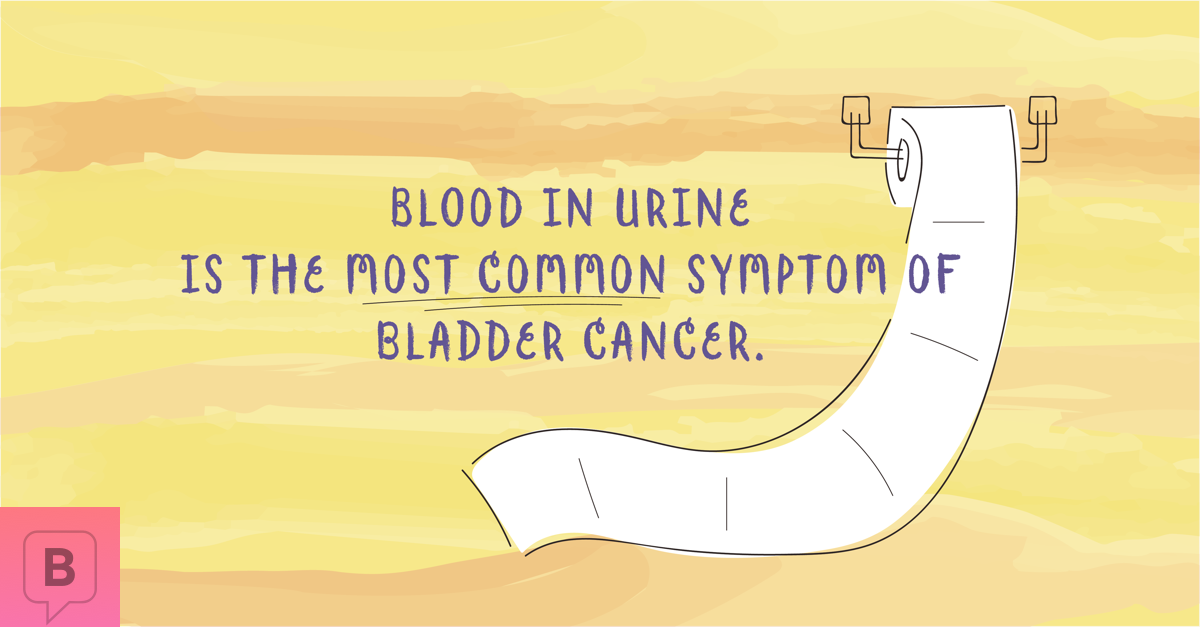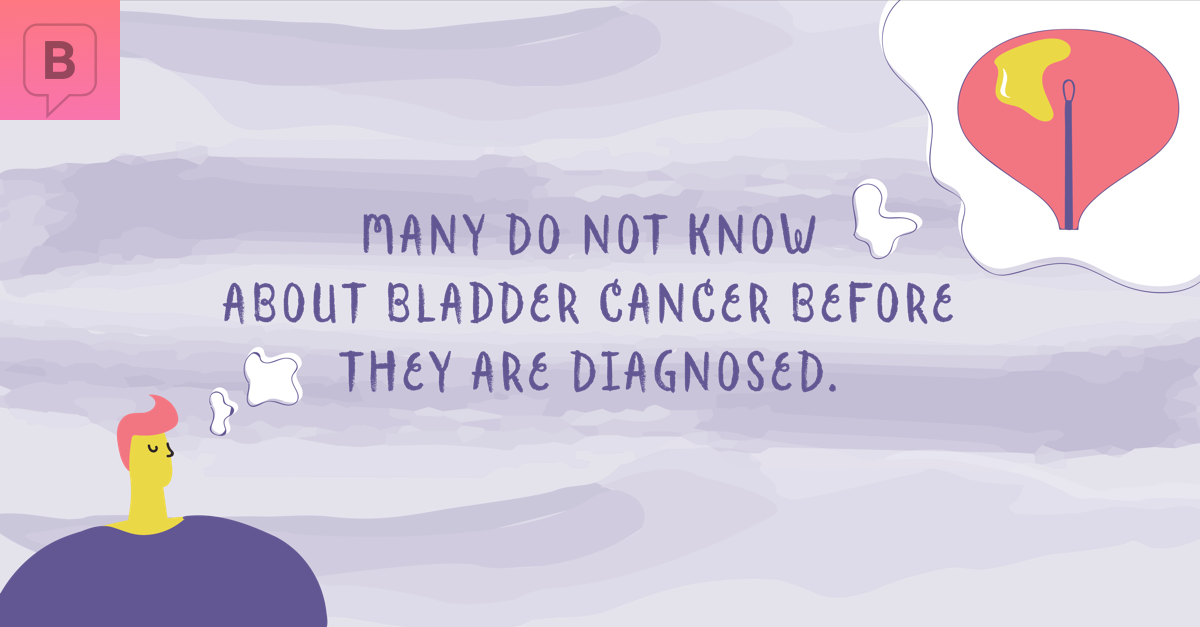4 Facts to Help Raise Bladder Cancer Awareness
Despite how common it is, many people do not know much about bladder cancer! In addition to supporting those who live with bladder cancer, our aim at BladderCancer.net is to spread awareness so that more people know about the warning signs, who is at risk, and how it is treated.
Here are 4 simple facts to know about bladder cancer:
What are the warning signs?

The most common first symptom of bladder cancer is blood in urine. Many community members have shared their stories and experiences with blood in urine prior to diagnosis. It can be frightening to see blood, which may appear as a pink or red tint in your urine. See your doctor if you begin to experience blood in your urine. Other warning signs include changes in urination such as frequency, urgency, pain, burning or difficulty urinating.
Did you know about bladder cancer?

Bladder cancer is the 5th most common cancer in the US. However, we've heard so many people say that they had never heard about it until they were diagnosed. Perhaps people aren't talking about it because they feel stigmatized or uncomfortable about sharing. Smoking is one of the leading risk factors, and some people can be quick to judge smoking histories. It can also feel taboo to discuss a cancer that is "below the belt."
Who can get bladder cancer?

Although bladder cancer is 3 to 4 times more common in men, women can get bladder cancer, too. We hear many women share that it took them longer to get diagnosed, or that they were misdiagnosed with a UTI before their diagnosis. Because bladder cancer is more common in men, the information and support resources specifically for women living with bladder cancer may be harder to find.
How is it treated?

While many other cancers are treated with chemotherapy, surgery is the most common treatment for bladder cancer according to our 2018 In America Survey. Surgical treatment options for bladder cancer include a TURBT, a procedure where a resectoscope is inserted into the bladder to remove any tumors or areas of abnormal cells in non-invasive cancer. Surgical procedures for muscle-invasive bladder cancer include a cystectomy, where the bladder is partially or totally removed.
Join the conversation